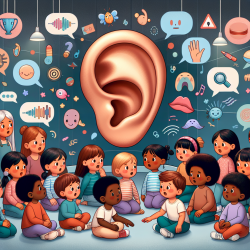Mindfulness Magic: Building Emotional Resilience in Kids
The COVID-19 pandemic brought unprecedented changes to the lives of children, affecting their education, social interactions, and home environments. A recent study titled "Mindfulness supports emotional resilience in children during the COVID-19 Pandemic" offers insights into how mindfulness can play a crucial role in helping children navigate these challenges.
Understanding Mindfulness and Emotional Resilience
Mindfulness is defined as the practice of paying attention in a particular way: on purpose, in the present moment, and non-judgmentally. It has been linked to various positive mental health outcomes, including emotional resilience, which is the ability to adapt to and recover from stressors and emotional challenges.
The study conducted by Treves et al. (2022) explored the relationship between trait mindfulness and emotional resilience in children during the pandemic. It found that higher levels of trait mindfulness were associated with lower stress, anxiety, depression, and negative affect in children. This suggests that mindfulness may have helped children cope better with the stressors of the pandemic.
Key Findings from the Study
- Children with higher trait mindfulness scores experienced less stress, anxiety, depression, and negative affect.
- Mindfulness moderated the relationship between the perceived impact of COVID-19 and negative affect.
- Children with high mindfulness showed no correlation between COVID-19 impact and negative affect, unlike those with low mindfulness.
Practical Applications for Practitioners
For practitioners working with children, integrating mindfulness practices into therapy or educational settings can be highly beneficial. Here are some ways to incorporate mindfulness into your work:
- Mindfulness Exercises: Introduce simple mindfulness exercises such as deep breathing, body scans, or mindful listening to help children focus on the present moment.
- Mindful Storytelling: Use stories that encourage children to reflect on their feelings and thoughts non-judgmentally.
- Mindfulness-Based Programs: Implement structured mindfulness programs in schools or therapy sessions to systematically build mindfulness skills.
Encouraging Further Research
While the study provides valuable insights, further research is needed to understand the mechanisms by which mindfulness supports emotional resilience. Practitioners are encouraged to explore additional studies and consider conducting their own research to deepen the understanding of mindfulness in children's mental health.
To read the original research paper, please follow this link: Mindfulness supports emotional resilience in children during the COVID-19 Pandemic.










